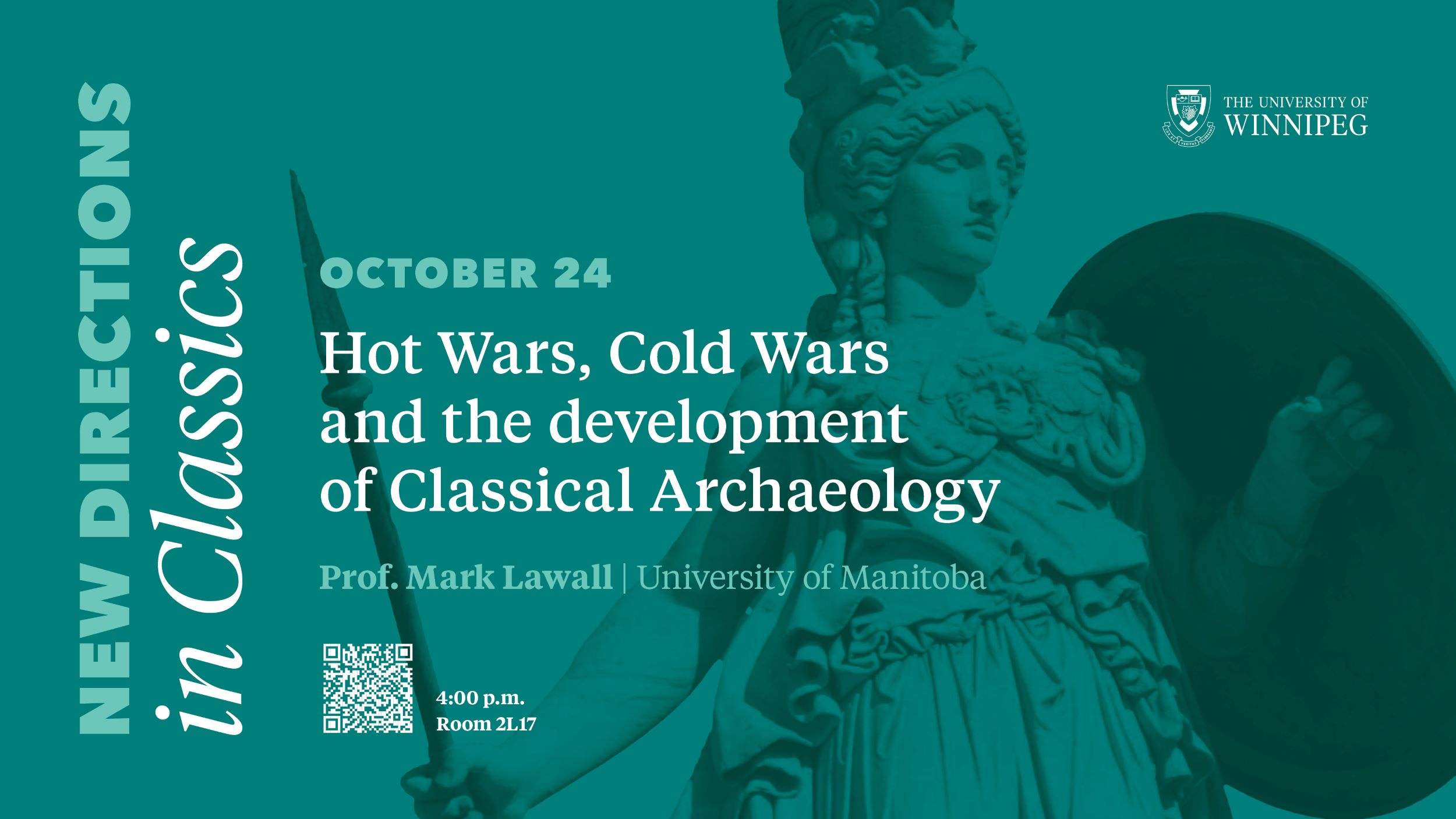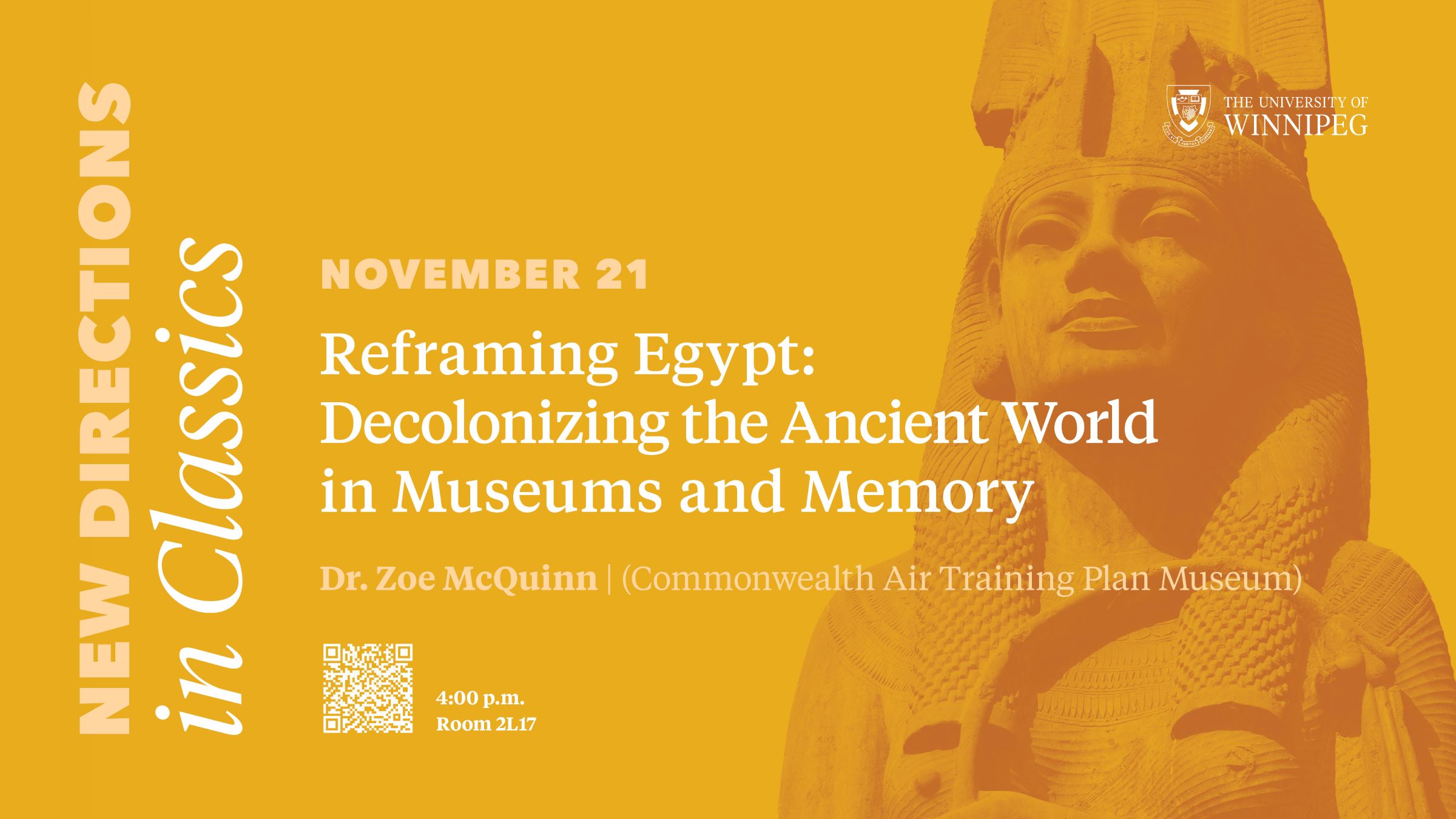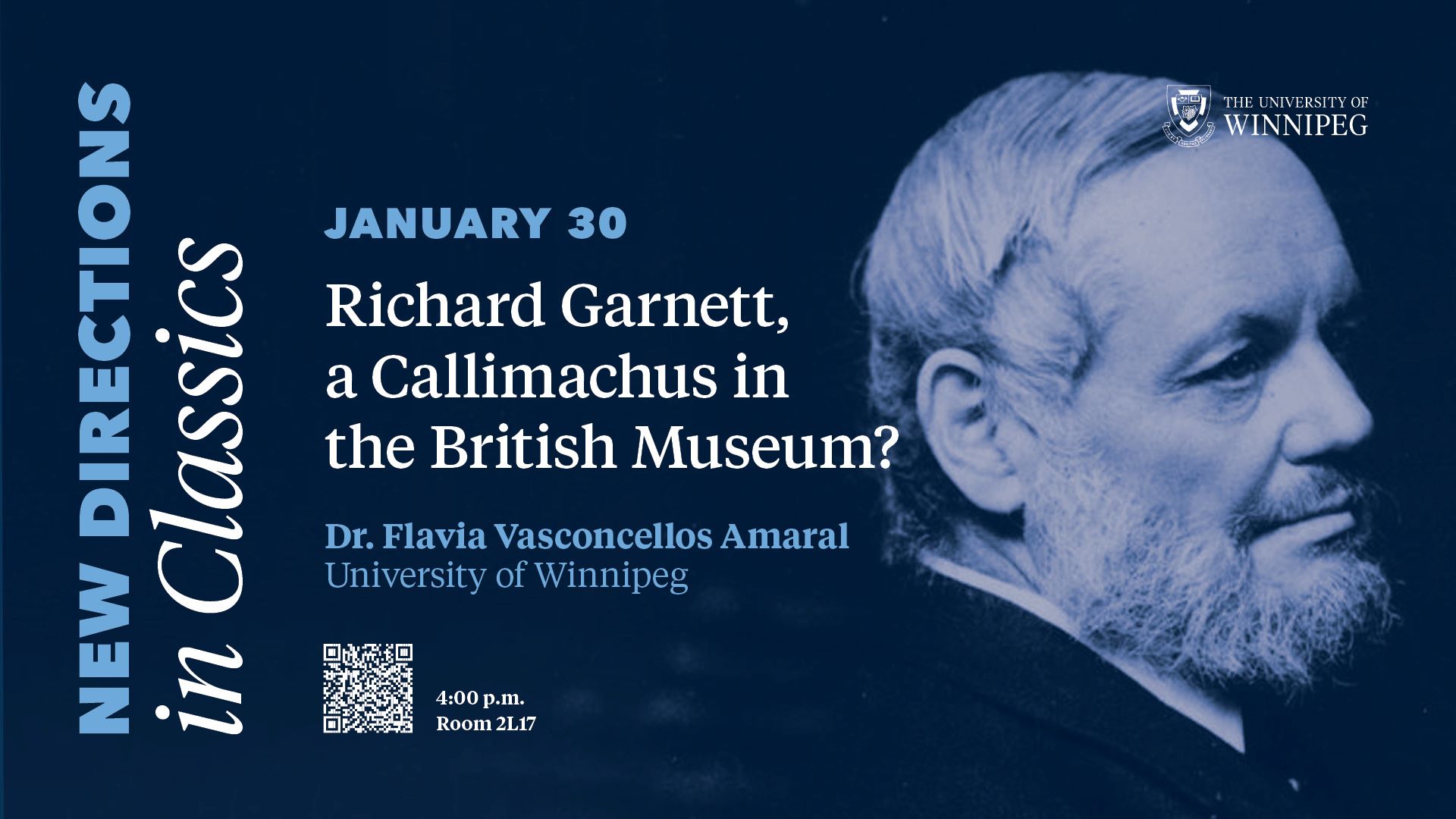New Directions in Classics IX
The Department of Classics is hosting its ninth season of New Directions in Classics from September 2025 to March 2026.
Once again, we would like to thank donors to our University of Winnipeg Foundation “crowd-funding” campaign. If you would like to support the series, please consider visiting the campaign page.
If you’d like more information on New Directions in Classics, please email Dr. Peter J. Miller or find us on Facebook
Watch many of our talks on our YouTube channel
2025-26 Schedule
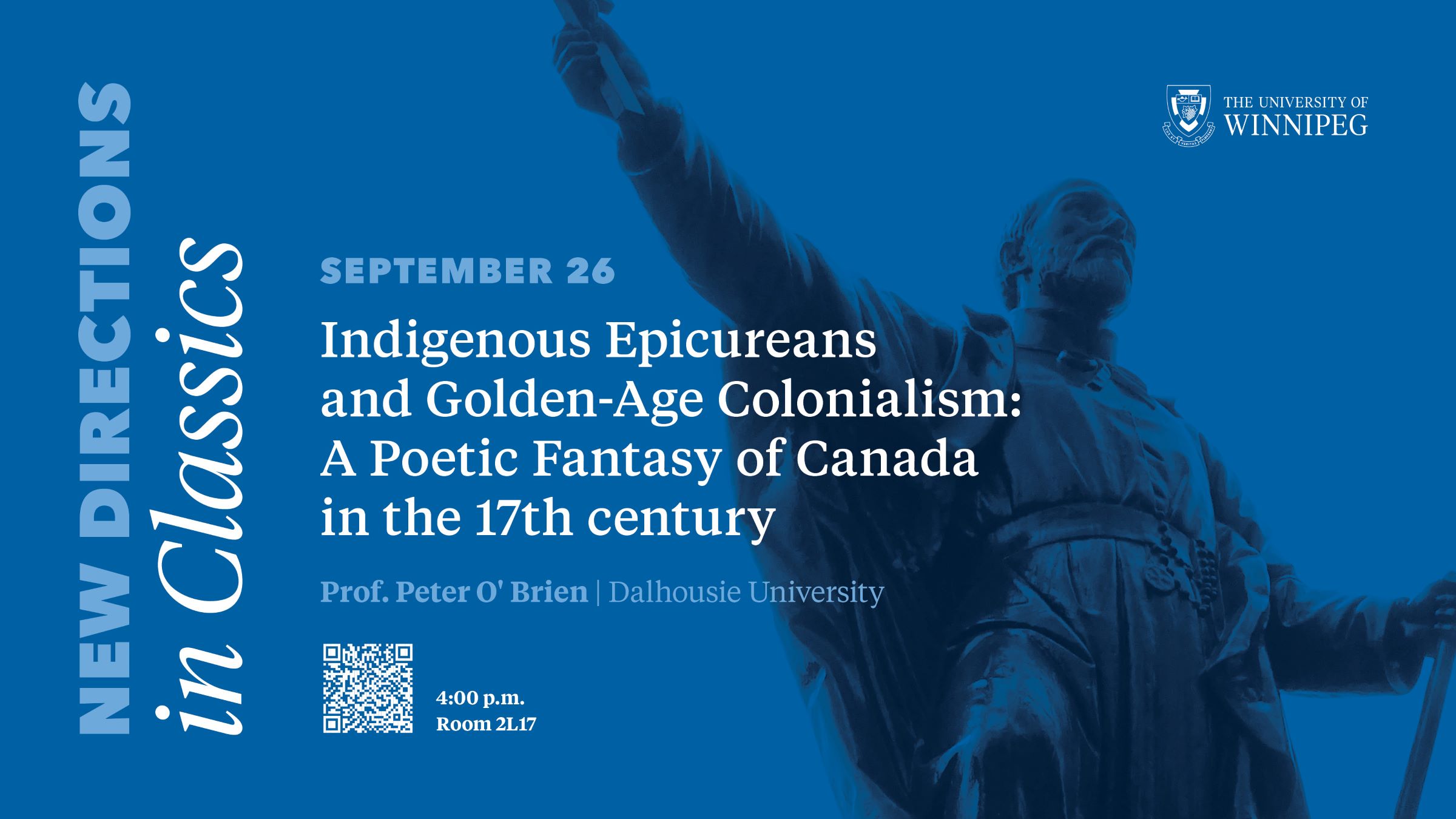
September 26, 2025
Prof. Peter O'Brien, Dalhousie University
Indigenous Epicureans and Golden-Age Colonialism: A Poetic Fantasy of Canada in the 17th century
4:00-5:00pm | 2L17
The Franciad of the Jesuit Laurent LeBrun (1608-1663) is a poetic exploration, in Latin, of Indigenous cultures encountered by French missionaries and colonizers in the territories they called “New France” in the 17th century. LeBrun’s poems use the language, imagery, and perspectives of ancient Greek and Roman literature to present a highly distorted portrait of Indigenous peoples. This presentation introduces this strange literary specimen, focusing particularly on LeBrun’s use of classical tropes of Epicurean philosophy to familiarize the Indigenous Other for his readers, and on classical images of the Golden Age to forecast an idealized hybrid society of colonizer and colonized.
October 24, 2025
Prof. Mark Lawall, University of Manitoba
Hot Wars, Cold Wars and the Development of Classical Archaeology
4:00-5:00pm | 2L17
Archaeology might seem like a discipline concerned with the past and its interpretation, but this talk examines how archaeology has been caught up in many of the most brutal conflicts of the 20th century and demonstrates how war has shaped the field. From Carl Blegen and Hetty Goldman eagerly excavating at Smyrna, but then leaving when the city fell to the newly founded Turkey, to two Americans, Emily and Virgina Grace, one of whom married an accused Soviet spy, while the other built her career on research into amphoras, archaeologists have taken advantage of political instability, or had their research disrupted and destroyed by wars across the last century.
November 21, 2025
Dr. Zoe McQuinn
Reframing Egypt: Decolonizing the Ancient World in Museums and Memory
4:00-5:00pm | 2L17
This talk explores how museums around the world are reimagining ancient Egypt—not just as a land of temples and tombs, but as a modern nation reclaiming its heritage. Drawing from work with the Grand Egyptian Museum and Canadian institutions, this presentation examine how narratives of empire, archaeology, and display have shaped Global understandings of Egypt and how new museum practices are challenging colonial legacies. From the role of scientific racism in shaping early Egyptology to the politics of display in 21st-century exhibitions, this talk asks: who gets to tell the story of the ancient world, and how does that affect how we understand our past today?
January 30, 2026
Dr. Flavia Vasconcellos Amaral, University of Winnipeg
Richard Garnett, a Callimachus in the British Museum?
4:00-5:00pm | 2L17
Known by his infallible memory and cordiality when serving users of the British Museum Library, Richard Garnett was more than a librarian. He was a poet, a translator, an editor, and the author of many books, acting as Callimachus did in the Hellenistic period: a librarian-poet. He had great knowledge of so-called universal literature, and he mastered several languages, including Greek and Latin. This presentation aims at understanding Richard Garnett’s role and choices as an editor and anthologist of classical texts in the transatlantic anthologies, and how such anthologies were then changed over time by local editors, reconfiguring which classical texts remained and their order.
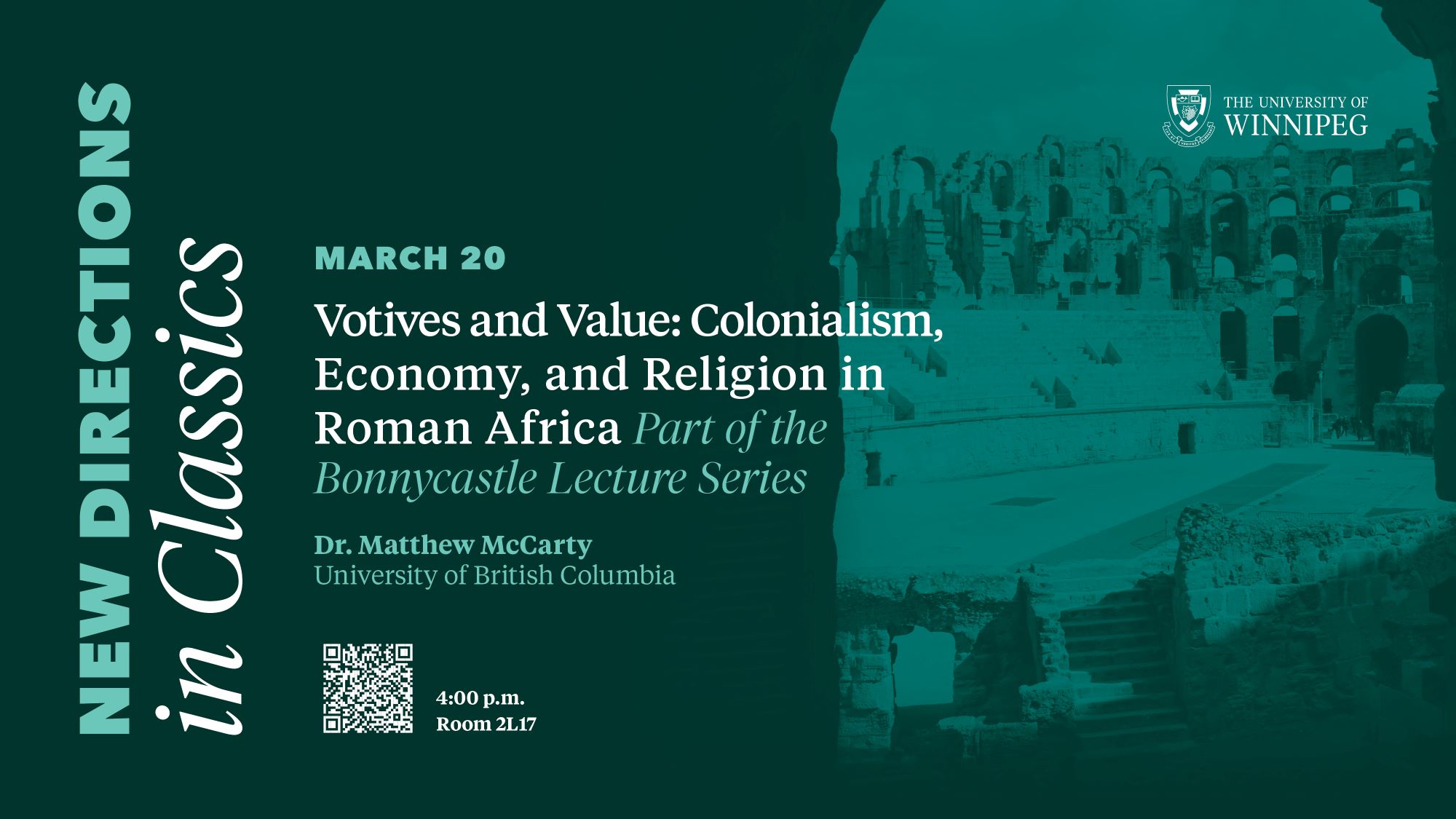
March 20, 2026
Dr. Matthew McCarty, University of British Columbia
Votives and Value: Colonialism, Economy, and Religion in Roman Africa
4:00-5:00pm | 2L17
Part of the Bonnycastle Lecture Series
The bifurcation of religion and economy is deeply baked into studies of Antiquity, driven by epistemologies born from modern colonialism. Nowhere is this clearer than in scholarship on Roman Africa, where the seeming cultural “permanence” of “African” religion is contrasted with the dynamism of the Roman “North African economic boom” (itself cast in the guise of modern development economics). This presentation argues instead for the centrality of votive worship practices in creating and naturalizing those forms of social value that underpinned the productive regimes of Africa under Roman rule.

